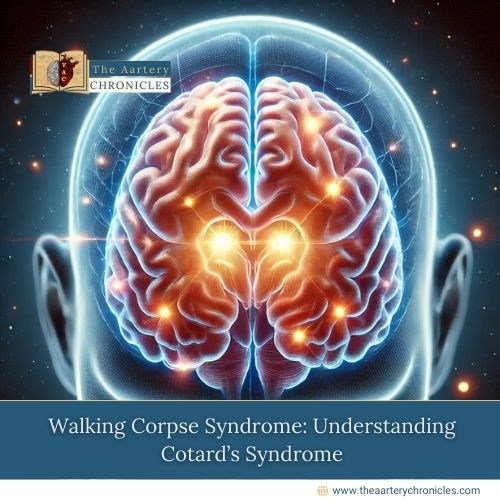

Understanding Grief: A Guide to Coping and Healing
Introduction
Grief is a profound and universal experience that touches everyone at some point in their lives. Whether it’s the loss of a loved one, the end of a significant relationship, or a major life transition, grief can manifest in many forms, affecting us emotionally, mentally, and physically. Understanding the signs of grief and recognizing its impact on our well-being is crucial in navigating this difficult journey. By exploring the nature of grief, its common symptoms, and the differences in how individuals cope, we can gain insights into our own experiences and find ways to support ourselves and others during times of loss.
Understanding the Nature of grief
Grief is a natural response to losing someone or something important, and it’s a common experience shared by people everywhere. It’s not a disorder or illness but a way our minds and bodies react to loss. This reaction has deep roots in our evolutionary past, and while it’s something we share with animals, humans experience it on a more complex level.
The way people grieve can vary, depending on the nature of the relationship they had with what they’ve lost. Our personal connections and cultural background play a big role in how we process and express grief. Despite these differences, grief is a universal experience that helps us navigate the emotional impact of loss, making sense of the changes in our lives.
Common Signs and Symptoms of Grief
Grief is a deeply personal experience and can manifest in various ways, both emotionally and physically.
Emotional Symptoms
- Sadness and Tearfulness: Persistent sadness and frequent crying are typical responses.
- Shock and Disbelief: Initial reactions often include shock and a sense of disbelief about the loss.
- Anger and Irritability: Grieving individuals may feel anger, either directed at themselves, others, or the situation.
- Guilt and Regret: Many experience guilt about things left unsaid or actions taken/not taken.
- Anxiety and Fear: There can be a heightened sense of fear and anxiety about the future or life without the deceased.
- Depression: A deep, pervasive sadness that can lead to feelings of hopelessness and loss of interest in daily activities.
- Longing and Yearning: A strong, ongoing desire to be reunited with the deceased is common.
Cognitive Symptoms
- Difficulty Concentrating: Grief can make it hard to focus on tasks or make decisions.
- Preoccupation with the Loss: The person may constantly think about the deceased or relive memories.
- Disbelief and Confusion: It may be hard to accept the reality of the loss, leading to confusion and a sense of unreality.
Physical Symptoms
- Fatigue and Exhaustion: Grieving can lead to extreme tiredness, even after adequate sleep.
- Aches and Pains: Physical symptoms such as headaches, stomach aches, or muscle tension are common.
- Appetite Changes: Some may experience loss of appetite, while others may overeat for comfort.
- Sleep Disturbances: Insomnia or excessive sleeping are frequent in grieving individuals.
- Chest Tightness or Pain: A common physical manifestation of grief is a feeling of tightness in the chest or throat.
Behavorial Symptoms
- Social Withdrawal: Many grieving individuals tend to withdraw from social interactions and activities.
- Restlessness or Agitation: There may be an inability to sit still, leading to pacing or other restless behaviors.
- Crying Spells: Frequent and unexpected bouts of crying can occur.
- Avoidance of Reminders: Some may avoid places, objects, or activities that remind them of the deceased.

Understanding the Individual differences in Grief
Despite these shared experiences, grief is highly individual, and differences often emerge even within these commonalities.
- One major difference is the timeline of grief—how far along someone is in their grieving process can drastically affect their emotions and behaviours.
- The nature of the relationship with the deceased also plays a significant role in shaping grief
- The loss of a child, for example, may be experienced differently than the loss of a sibling.
Cultural background and beliefs about death can create significant differences in how individuals process grief.
- For instance, beliefs in reincarnation or life after death might influence how someone copes with their loss.
- Similarly, cultural customs surrounding mourning can either validate or conflict with a person’s emotional experience.
Social engagement varies widely among those who grieve.
- Some people may withdraw and isolate themselves, while others may find solace in social support.
- Previous experiences with loss and genetic predisposition can also influence how someone handles grief.
- Some individuals may find comfort in talking about their lost loved ones, while others might prefer to keep their feelings private.
Family dynamics also play a role:
- The degree to which family members or close friends knew the deceased can affect how they interact with the bereaved.
- Anxiety levels, emotional expression, and how open others are to discussing the loss can further shape the grieving process.
Understanding Complicated Grief
Complicated grief, sometimes referred to as persistent complex bereavement disorder, occurs when the intensity of grief does not diminish months after the loss of a loved one.
- While there is no universal agreement on how much time must pass before diagnosing complicated grief, some mental health professionals consider it when severe symptoms persist beyond 12 months.
- This type of grief is marked by an enduring and consuming sadness, difficulty moving on, and a preoccupation with the deceased, making it challenging to resume normal life activities.
Coping with Grief
1.Acknowledge Your Pain
Grief is a natural response to loss, and it’s essential to recognize the emotional pain you’re experiencing. It is okay to feel overwhelmed by sadness, anger, or confusion. Acceptance of these emotions is the first step toward healing.
2. Understand the Individual Nature of Grief
Grieving is not a one-size-fits-all process. Everyone’s experience of loss is different, and there is no right or wrong way to grieve. Your personality, life experiences and the significance of the loss to you all shape your grieving process. Give yourself the time you need to grieve at your own pace.
3. Seek Support
Isolation can intensify grief, so it’s crucial to reach out to others for support. Be around people who value you and are willing to listen. Sometimes, simply being with others can provide comfort, even if you don’t feel like talking about your loss.
4. Look after your physical and emotional health.
Grief can have an impact on both your physical and mental health. Be sure to maintain a healthy diet, get plenty of rest, and stay active. Taking care of your physical health can help you better cope with emotional stress. Don’t hesitate to express your emotions in creative ways, such as journaling, creating art, or engaging in activities that bring you peace.
5. Allow Yourself to Feel Whatever You Feel
There’s no set timeline for grief, and it’s important not to rush the process. Allow yourself to experience whatever feelings arise without judgment. It’s okay to cry, to feel angry, or even to find moments of joy. Your feelings are valid, and it is critical to acknowledge them.
6. Prepare for Triggers
Certain dates, holidays, or significant milestones may bring a resurgence of grief. Be aware of these potential triggers and plan ahead on how to handle them. It might help to spend time with supportive people or to create new rituals to honor your loved one.
7. Find Meaning and Purpose
While moving on from grief does not mean forgetting your loss, it does mean finding a way to live with it. Over time, try to find meaning in your experience and a new sense of purpose. Whether it’s through helping others, creating something new, or simply cherishing memories, finding ways to integrate your loss into your life can help you heal.
8. Seek Professional Help if Needed
If your grief feels too overwhelming to handle on your own, or if it’s interfering significantly with your daily life, consider seeking help from a therapist or grief counselor. Professional support can provide guidance and help you work through intense emotions.
Conclusion
Grieving is a deeply personal journey, but it is also a testament to the love, connection, and meaning we attach to those we have lost. While the path through grief may be long and challenging, it is important to remember that healing is possible. By acknowledging our pain, seeking support, and allowing ourselves to feel and process our emotions, we can gradually find peace and purpose again. Grief is not something to be “fixed,” but rather a process to be lived through, with the understanding that it will shape us in ways we may not yet fully comprehend. As you navigate your journey of grief, take heart in knowing that you are not alone, and with time, patience, and compassion, you will find your way forward.

Abhigyan Barooah
Reviewed by Dr. Aarti Nehra








